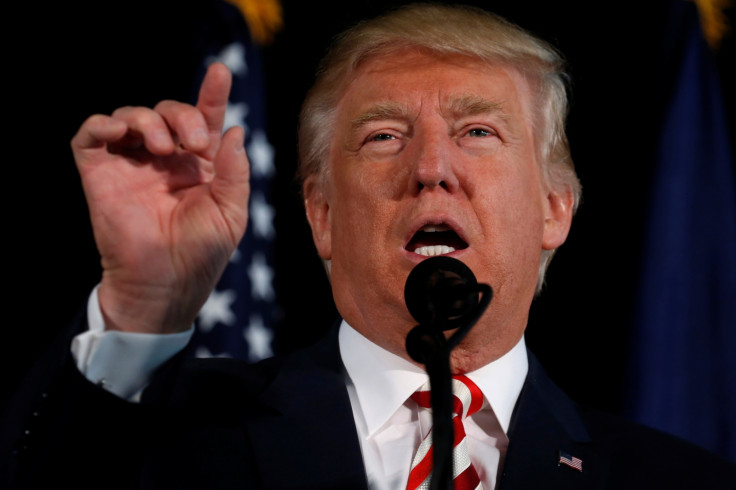Donald Trump proposes imposing term limits for members of Congress
The GOP nominee proposed capping Senate members to two terms and House members to three terms.

Donald Trump has vowed to "drain the swamp" in Washington DC and has proposed term limits for Congress to reduce corruption. The Republican nominee announced his proposal on Tuesday (18 October) while campaigning in Colorado Springs, Colorado.
The announcement regarding term limits for Congress comes a day after Trump proposed a five-point ethics reform package that would prohibit executive branch officials, members of Congress and their staff from immediately taking a lobbying job, according to US News & World Report.
"Decades of failure in Washington, and decades of special interest dealing, must come to an end," Trump told the crowd. "We have to break the cycle of corruption, and we have to give new voices a chance to go into government service."
Trump said his proposal would limit Senate members to two terms (12 years) and House members to three terms (six years), NBC News reported. He reasoned his proposal would make it "so that we can have a government that works again and can function properly."
Proposals such as Trumps have garnered a significant amount of support in the past. A 2013 Gallup survey found 75% of Americans would vote for term limits for the Senate and the House, while 21% said they would be against the change. The survey found Republicans (82%) to be more in favour of term limits than Democrats (65%).
A recent survey by Gallup also revealed that the approval rating for Congress is only at 18%. Approval ratings for Congress have been low for years and has not hit above 25% since 2009. Republican once again were far more disapproving of Congress than Democrats, 14% to 22% respectively.
According to US News & World Report, Dan Greenberg, a former analyst for the Heritage Foundation who served two terms in the Arkansas state legislature, noted term limits would reduce the advantages of incumbency and diminish the influence of lobbyists.
"Special-interest lobbyists thrive precisely because of the relationships they have with and the investments they have made in long-term incumbents," he wrote.
However, opponents claim the term limits would render Congress less effective and would encourage "office hopping". Political science professor Stanley Caress once wrote for US News that state that implement term limits can see the opposite effect they are hoping for when it comes to lobbyist.
"While term limits have changed the way lobbyist do their business, they have actually increased their influence," he wrote. "The legislators elected after term limits were imposed often lack knowledge of many complex policies and turn to lobbyists for information. These special interest groups actually report that they now work harder 'educating' less knowledgeable legislators."
Trump's new proposal helps boost his policy credentials on the issue of ethics, NBC News noted, while also helping to take the focus away from his recent sex assault scandals. The GOP nominee's campaign has fought hard to portray rival Hillary Clinton as corrupt and tied to special interests.
© Copyright IBTimes 2025. All rights reserved.






















